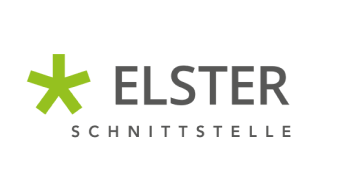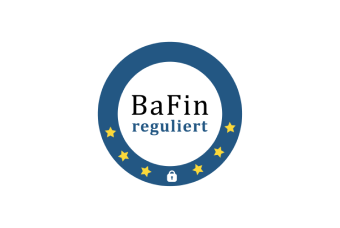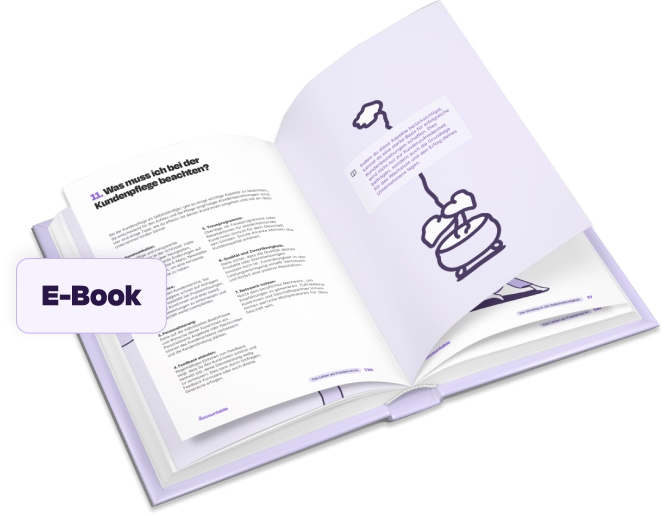Self-employed persons with low income can save time and money by making use of the small business regulation (Kleinunternehmerregelung). This article explains what counts as a small business and which taxes and deadlines are relevant for you.
The so-called Kleinunternehmerregelung (small business regulation) facilitates the entry into self-employment. This is due to the relatively small administrative expense and the fact that you can save a lot of time and money if done right. For instance, small businesses are exempt from VAT (value added tax) should they make use of the Kleinunternehmerregelung. Due to this tax abatement as Kleinunternehmer you can achieve an economic advantage, especially when working primarily with private clients. As a small business, being exempt from VAT, you can offer your services at a lower price than the taxable competition, which is a compelling proposition for private clients. (Click here to find out if the Kleinunternehmerregelung makes sense for you and can be expected to be profitable).
However, certain important criteria must be met. In the first year of business, your income cannot exceed the amount of 25.000 EUR, and your income cannot exceed 100.000 EUR in the following year either.
Another advantage is that Kleinunternehmer can make use of a simplified version of bookkeeping. Meaning, you don’t need to distinguish between gross and net amounts in your bookkeeping.
More often than not, it is worth it to make use of the Kleinunternehmerregelung, especially in the beginning. Even if only to see whether self-employment is the right next step for you and can also bring economic profit.
Do you want to register as self-employed? Fill in the official Fragebogen zur steuerlichen Erfassung for free and submit it directly to the Finanzamt
Go to the Fragebogen


A small business is not immediately tax-free. If your income exceeds 9.984 EUR per year (as of 2022), even as Kleinunternehmer, you must submit and pay Einkommensteuer (income tax). However, you have the chance that Gewerbe- und Umsatzsteuer (trade and VAT) will be eliminated if certain requirements are met. Let’s take a closer look at the profit limits and at what point you would have to pay which tax.
Self-employed entrepreneurs, freelancers, Kleinunternehmer – everyone who earns money has to give his/her contribution to the system and pay taxes. The following taxes could possibly head your way, should you be wanting to start a small business.
Einkommensteuer (Income tax): The profit from your small business is taxed as part of the so-called income tax. In 2022, the basic allowance is 9.984 EUR for single people and double that for married people (19.968 EUR). For an annual income up to these limits, you do not have to pay income tax, but you still have to submit your income tax return.
Gewerbesteuer (Trade tax): All entrepreneurs are generally subject to trade tax, with the exception of freelancers and people who work in agriculture. There is currently an annual allowance of 24.500 EUR for trade tax. Click here to find out how to register a business.
Lohnsteuer (Wage tax): Wage tax is only relevant for Kleinunternehmer with employees.
Umsatzsteuer (VAT): Kleinunternehmer who make use of the Kleinunternehmerregelung as such are exempt from paying VAT. For all other entrepreneurs, VAT is always due when goods and services are sold. The Umsatzsteuersatz (VAT rate) in Germany is 19 percent, the reduced rate is seven percent.
Before you can start out as a self-employed person, you must register at the Finanzamt (tax office). This should be done with the official form that you can find online. It's called "Fragebogen zur steuerlichen Erfassung". In the form, you can state directly that you want to make use of the Kleinunternehmerregelung. It is therefore very easy to apply for this regulation.
💡Tip from Accountable: In order to register as self-employed you need to fill in the "Fragebogen zur steuerlichen Erfassung". You find the form on our website for free!
We also have a special tax calculator for self-employed professionals. With it, you can find out how much you would net earn as a self-employed person and how much tax you would pay in less than 2 minutes.
As a Kleinunternehmer, you have to keep a few things in mind when issuing invoices. The most important thing: you are not allowed to charge VAT on your invoices. You also have to indicate the reason for this on the invoice. Just include this following legal paragraph on the invoice: "In accordance with § 19 UStG, no VAT is charged". Apart from that, the same information belongs on the invoice as on any other official invoice.
💡Tip from Accountable: You can use the free Accountable App to create your invoices as a Kleinunternehmer. The relevant legal paragraph is automatically inserted for you! So you are guaranteed to always create a legally correct invoice. Try it out right away!
29-year-old hobby hat maker Valerie works full-time in sales for a fashion designer. In her free time she loves to design hats. Initially she did so only for friends and other acquaintances, and later also upon requests from customers. More and more orders are coming in. She decides to sell her creations online and starts a small business part-time. To do so, she registers a Kleingewerbe and makes use of the Kleinunternehmerregelung.
Since she designs her hats herself and her income in the first year is only around 12.000 EUR, she does not have to pay Umsatzsteuer (VAT) according to the Kleinunternehmerregelung. No Gewerbesteuer is due either, since her income from the trade is less than 24.500 EUR. Nevertheless, she has to pay Einkommensteuer because her annual income exceeds the limit of 9.408 EUR.
💡Tip from Accountable: It makes sense to diligently collect receipts for your tax return right from the start. Fortunately, you no longer have to physically store all your receipts. Instead, you can use our app, where you can simply save your receipts digitally via photo scan and save yourself the annoying paperwork.
Annual tax returns must be submitted no later than five months after the end of the year that you are submitting the return for.
The good news, however, is that since the 2018 tax year, taxpayers can now take their time filing their returns and have until July 31 of the following year. For 2022 tax returns, there was an even longer deadline of October 02, 2023.
💡Tip from Accountable: With our app, you always have a wealth of expertise in tax matters at the tip of your finger and you never loose track of your income and expenses, too.
The bottom line is that small business owners don’t have many tax obligations. This leaves you more time to concentrate on the following tasks:
How much tax do I have to pay as a small business owner?
If you are subject to the small business regulation, you do not have to disclose and pay sales tax. However, you must file an income tax return (Einkommensteuererklärung) and pay income tax (Einkommensteuer) on your profit. How much tax you have to pay depends on your profit.
How much am I allowed to earn tax-free as a small business owner?
The basic tax-free allowance for 2023 is €10,908. Income that is below this amount is generally tax-free. In addition, as a small business owner, you do not have to disclose sales tax. The small business regulation applies to companies that generate sales of no more than €22,000 (for 2021) in the previous year and do not expect to generate sales of more than €50,000 in the current year.
What do I have to submit to the tax office as a small business owner?
As a small business owner, you must file an income tax return (Einkommensteuererklärung) with an annual VAT return (Umsatzsteuerjahreserklärung) and an income statement (Einnahmenüberschussrechnung (EÜR)) once a year. In some cases, you may also need to file a business tax return (Gewerbesteuererklärung).
How much VAT do small business owners have to pay?
Self-employed persons who take advantage of the small business regulation are exempt from the value-added tax. This means that they are not allowed to show sales tax on their invoices and do not have to pay VAT to the tax office as long as they do not exceed the turnover limit.
20 Kapitel knallhart recherchiert und vom Steuerprofi geprüft
Kostenlos herunterladen

Author - Sophia Merzbach
Sophia has been a key member of the Accountable team for many years, bringing a unique blend of journalistic precision and in-depth tax expertise to her work.
Who is Sophia ?Thank you for your feedback!
Useful
How much income tax is deducted from your income is largely determined by your tax class. There are ...
Read moreWorking as a self-employed professional has many advantages: You are your own boss and you can choos...
Read moreWorking with international clients can be tricky, depending on where exactly they’re located, whet...
Read more